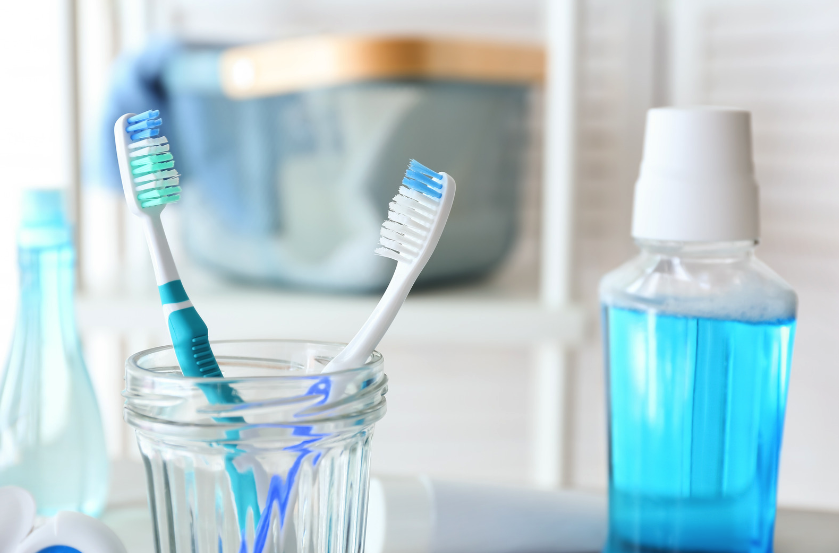
We all know the drill – brush twice a day, floss regularly, and use mouthwash. However, there are so many more details that go into your daily oral health routine. Like, do you know when the best time to brush your teeth is? What about how soon you should use mouthwash? All of these are important facts to take in when creating a routine.
To help you out, we have compiled a few tips to keep you on track.
Tips For Brushing Your Teeth
We are sure you’ve been told this your whole life, but make sure you are brushing your teeth twice a day for two minutes. It’s highly important to not go to bed without brushing your teeth because you need to get those germs and bacteria off that have accumulated all day. Plaque doesn’t remove itself, and if left unattended for too long your teeth may start to decay.
To make sure you are getting the most out of your brush, make sure you are moving in a circular motion with a gentle force. This will make sure you get everything out of your teeth without damaging them. Also, try to get your tongue as well. The majority of the bacteria that cause bad breath lives here – yuck!
Remember, plaque can seriously harm your teeth and oral health if left untreated.
When To Brush Your Teeth
Most people might think to brush your teeth right after a meal, however, that can actually cause more harm than good. If you like to indulge in acidic foods like:
- Citrus
- Soda
- Processed Foods
Make sure you give yourself plenty of time before brushing since you could be spreading and forcing sugar into other areas of your mouth. You don’t want to ruin your teeth!
If you enjoy a big breakfast to kickstart your day, make sure you are brushing before you eat. It might seem like a better idea to wait until after, but brushing your teeth before you eat will protect them while you eat. Whereas if you brush after you eat you will just be brushing the sugars and acids into your teeth.
How To Store Your Toothbrush
Most people might think to just toss their toothbrush in a drawer after they use it, but it’s actually pretty important to store it a specific way. First off, make sure you are standing it in the upright position to make sure it gets completely dry. Make sure you rinse it very thoroughly after every use to get all the germs out of it. For complete cleanliness, change your toothbrush about every three months to ensure you are keeping your teeth clean with the most effective tool.
Flossing Tips
Flossing is a tool that is neglected in many oral hygiene routines. Plaque and foods can build up in between your teeth, making it hard for your toothbrush to reach. That is where floss comes in. Using regular floss may be a challenge for some people, which is why they decide to ditch the floss altogether. However, there are many other options to reach those hard places.
Some common benefits you will receive from flossing are:
- Reduced Plaque
- Lowered inflammation
- Stimulated gums
Along with floss, make sure you are adding in mouthwash to your oral routine. If you are not sure which one to get, make sure you ask for recommendations from your dentist or find one that contains fluoride. A good mouthwash has way more benefits than great breath, like:
- Re-mineralized teeth
- Reduced acid in the mouth
- Cleans the hard-to-reach areas around the gums
Whether it’s flossing, scrubbing your teeth with a toothbrush or rinsing with mouthwash, your oral hygiene routine will never be fully complete without a visit to the dentist. Try to visit your dentist twice a year to get the full workup. Plus, you can bring up any issues you are experiencing while maintaining your teeth.
